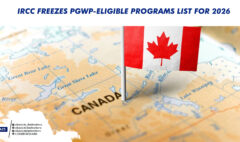STUDYING IN GERMANY AS AN INTERNATIONAL STUDENT
August 20, 2025 2025-08-20 15:08STUDYING IN GERMANY AS AN INTERNATIONAL STUDENT
STUDYING IN GERMANY AS AN INTERNATIONAL STUDENT
Germany continues to cement its reputation as one of the world’s top destinations for international education. With over 469,485 international students enrolled as of 2025, the country is not only admired for its world-class universities and tuition-free or low-cost education system, but also the wealth of opportunities it offers students during and after their studies.
Germany’s mix of affordable education, practical training, and strong job opportunities is why international students continue to choose the country in growing numbers. For many, what starts as a study abroad experience becomes a long-term career and life in one of Europe’s strongest economies.
Germany is home to some of Europe’s most prestigious universities, many of which rank among the best globally. Students are drawn by: High-quality education with a strong focus on research, innovation, and practical training, affordable tuition, as most public universities charge little to no fees, a supportive environment for international students, with numerous English-taught programs, scholarships, and cultural integration support, and the chance to work part-time while studying, helping cover living costs.
The German education system blends theory with hands-on experience, making graduates highly employable both in Germany and worldwide. Another big attraction for international students is the pathway to employment after finishing a degree.
For EU/EEA students, they can seamlessly enter the German job market after graduation without the need for a work permit, and employment rights, working conditions, and taxes are the same as for German graduates.
For non-EU students they can extend their residence permit for 18 months after graduation to look for a job. During this period, they can take up any job to support themselves, even if not related to their field of study. To extend the residence permit, graduates must provide proof of graduation, health insurance, financial resources, and a valid passport/ID.
Once graduates secure employment related to their degree with at least a one-year contract, they can apply for the EU Blue Card, a residence permit for highly skilled workers. As of 2025, applicants must earn at least €48,300 annually to obtain the EU Blue Card, though this threshold lowers to €43,759.80 in shortage occupations (such as STEM fields). The EU Blue Card is typically issued for four years but can be shorter in some cases.
After 27 months (or 21 months with strong German language skills at B1 level), EU Blue Card holders qualify for a permanent residency status (settlement permit), and with the new Naturalization Act (effective June 2024), individuals can now apply for German citizenship after 5 years of living in the country as a permanent resident.
Even if graduates return home after studies, they can come back using a Job Seeker Visa, valid for six months. Unlike the residence permit extension, this visa does not allow working while job hunting, so proof of financial support is required, but graduates can again transition to the EU Blue Card as soon as they get employed.
Germany’s strong economy and thriving industries, especially in engineering, IT, healthcare, and research, make job opportunities plentiful for graduates. Still, employers often favor candidates with German language skills, so learning the language during university greatly improves prospects. Graduates can explore job portals, university career centers, and even company websites to find opportunities. Networking and contacting employers directly also help.









